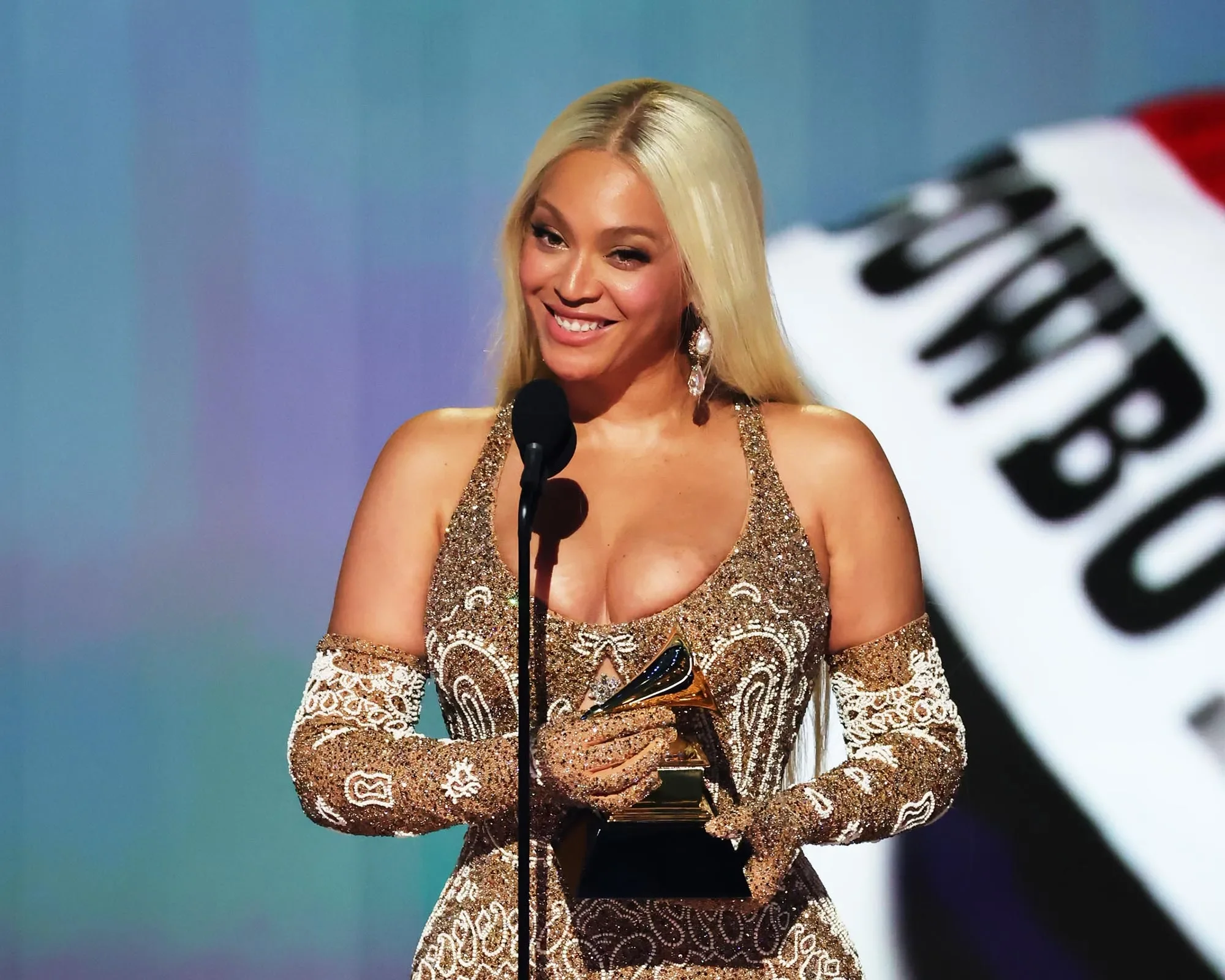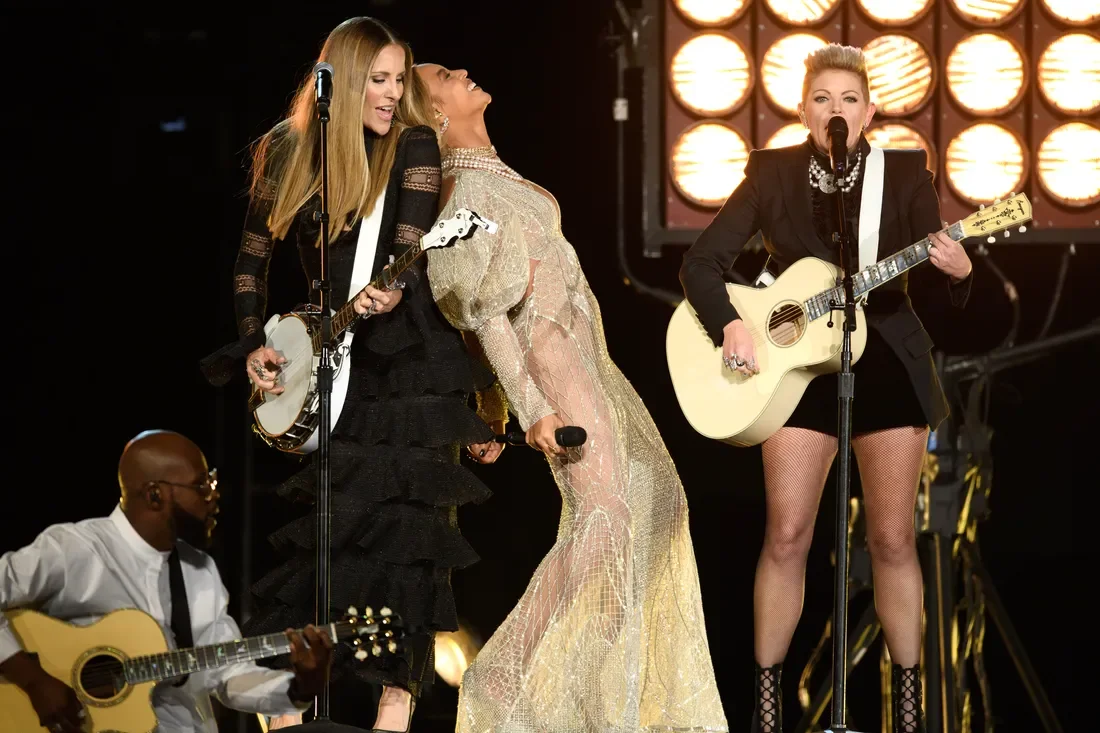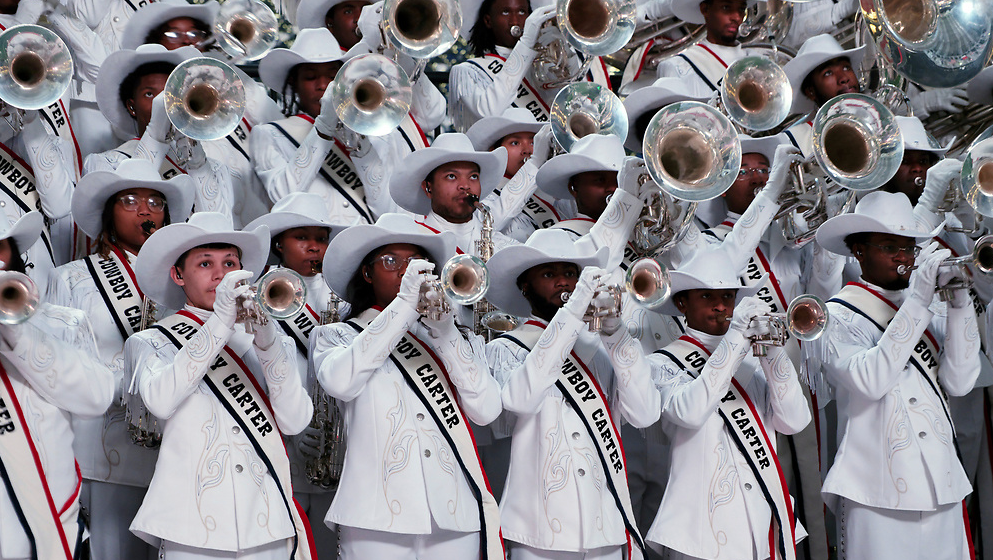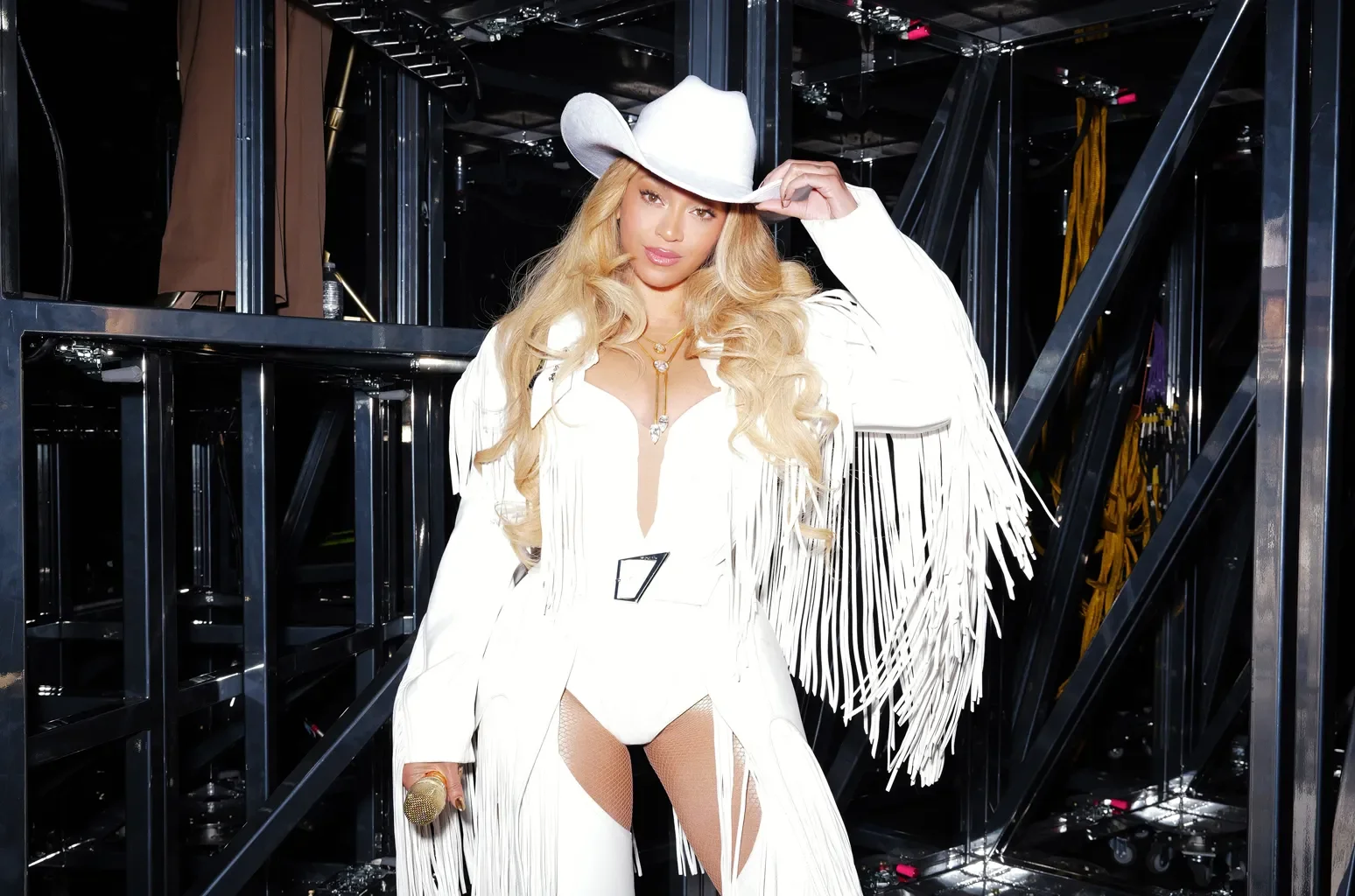Genres Are a Funny Little Concept, Aren’t They? Moving The Goalpost.
by nxus Contributor, Tiana Jemmott (IG: @the_mrsicy)
2025 Country Album of The Year Winner, Beyoncé, Cowboy Carter , Parkwood Entertainment
Miss Linda Martell was beyond correct when she said genres are quite the funny concept. It seems like just as the BeyHive and the rest of the world were getting fully re-immersed in the world of Cowboy Carter, thanks to the current world tour, the Recording Academy decided to gather together and remind us exactly why this album was so needed.
Contributor Bio:
Tiana Jemmott is a cultural essayist and writer whose work explores the intersections of Black womanhood, identity, and creative legacy. With a sharp eye for nuance and a deep reverence for storytelling, her writing uplifts the voices and visions of Black artists while challenging conventional narratives.
On June 12th, the Recording Academy announced changes to several award categories ahead of the 2026 Grammy ceremony. The update splits the existing “Best Country Album” category in half — renaming it “Best Contemporary Country Album” and creating a new one called “Best Traditional Country Album.” It doesn’t take a rocket scientist or a brain surgeon to connect this change to the release — and controversy — surrounding Beyoncé's eighth studio album, Cowboy Carter.
I personally believe that anyone with functioning ears and decent taste in music could recognize Cowboy Carter as a masterpiece — a true homage to country music and its history. There was a clear winner when it came to lyrics, production, and impact — both on the genre and the music world as a whole. And that winner not only walked away with Country Album of the Year, but also Album of the Year.
However, despite the success and accolades, the triumph of Cowboy Carter was not without major controversy. The fact that it dominated the awards, especially within the country music space, sparked heated debates. Comments like:
“Omg. She is not from the country. She just thinks if Taylor [Swift] can switch genres, she can,”
“Beyoncé ghettoed ‘Jolene,’”
and “ghetto trash” —
…don’t even begin to touch the surface of the hate this project received.
Beyoncé & Dixie Chicks perform at the 2016 CMAs
Rick Diamond/Getty Images
But this not-so-warm reception from country music fans is nothing new. In fact, it’s one of the major motivators behind the creation of Cowboy Carter.
Back in 2016, during the Lemonade era, we were actually given a taste of Country Gyal Bey with the song “Daddy’s Lessons.” One thing Beyoncé is always gonna do is usher in a cultural reset — and Lemonade did exactly that. A pop album with a sprinkle of country and an homage to her Creole roots, it made perfect sense to me that the CMAs would invite her to perform at their 50th award show.
The performance had all the right elements: a giant live band, brass section, Beyoncé, and a surprise appearance from the iconic Dixie Chicks. And yet, it was met with major backlash from both viewers and critics. (Are we beginning to see a pattern here?)
The Lemonade era didn’t shy away from addressing the state of the country. Beyoncé was speaking directly to the history of racial tension in America — and people weren’t ready for it. Her “Formation” music video included audio from New Orleans bounce legend Messy Mya asking, “What happened after New Orleans?” — a direct callout to the government's failure to support Black communities in the aftermath of Hurricane Katrina. The visual of her standing on top of a sinking police car said everything.
By the time she performed “Formation” at the Super Bowl, the outrage had already begun. From Fox News anchors to online commentators, people accused her of hating the police, inciting violence, and trying to “destroy” America — all because she had the audacity to tell the truth.
Then came the CMAs. People were already heated, and the fact that she was joined by the Dixie Chicks — who had been unofficially exiled from country music after criticizing President George W. Bush in 2003 — only added fuel to the fire. A group of unapologetic women taking up space in a room that had historically pushed them out? Of course people were upset. One alleged Country Music Hall of Fame member, Alan Jackson, reportedly stormed out. And online? It got worse. One commenter wrote:
“Apparently the disgusting progressives at the CMAs are considering allowing the police-hating, racist Beyoncé [to] perform her brand of filth in an effort to destroy the image of country music.”
It’s ironic, really. In the early stages of her career — especially during her Destiny’s Child days — Beyoncé was mocked for being “too country” to be a pop star, from the way she talked to the way she dressed. Now, years later, she’s being told she’s not country enough.
And with Cowboy Carter, people are still trying to write her off. One Facebook commenter even claimed Beyoncé only made the album “to poke fun at country music.” The lack of understanding — or more truthfully, the refusal to see what the project really is — is exactly why she made it.
But before we entertain another debate about whether Beyoncé belongs in country music, let’s state the facts: country music was — and is — a Black art form. Black Musicians were essential players in the creation of Country Music from the lyrical content down to the instruments used to make the melodies. The banjo was brought to America from West Africa when our people were brought over during the transatlantic slave trade. The hymns heard in Black churches from ministers in the South were used in early adaptations of Country Music and yet they were rarely even credited — further explaining why present day some people have a hard time drawing the clear connection between Black People and Country Music.
Just like all things graced by and created by Black People, Country Music was stolen from us and we were cut out of the narrative despite this music being the art, the sound, and the voice of our people during a time where they had already had everything they had ever known taken from them already. Using this music to voice their pain, find their joy, and connect back with the motherland. I’m sure modern day country fans feel a sense of culture and pride in the history they know, but the true story of country music and its history goes far beyond cowboys and their hats, horses, salons, and cigars — it is the sound of a people who had everything taken from them and still used their gifts to bless the earth. That is something that only the biggest star in the world who also happens to be a Black Woman from the South can understand and recognize.
Beyoncé Bowl 2025, Parkwood Entertainment
Just like Renaissance, Cowboy Carter made it clear that Beyoncé is on a mission: to reclaim the music of our people, infuse it with her own modern twist, and pay homage to both the ancestors who created it and those still keeping that legacy alive today.
From reimagining “Jolene” with Dolly Parton’s blessing to featuring a voice note from Linda Martell — the first commercially successful Black female country artist — every detail of this album is rooted in purpose. Beyoncé spotlighted rising Black country artists like Shaboozey, Tanner Adell, Brittney Spencer, Tiera Kennedy, and Reyna Roberts — showing the world that Black country is not only real, but thriving. She also brought in artists like Post Malone and Miley Cyrus, who have both dabbled in country, making it clear that the genre is wide open for anyone bold enough to experiment with it — but not without recognizing its roots.
Even her cover of “Blackbird” — originally written by Paul McCartney — adds another layer. While McCartney has said the song was partly inspired by hearing a blackbird in India, he’s also confirmed it was written as a response to the Civil Rights Movement in the U.S., especially the desegregation crisis in Little Rock. Its lyrics — “Take these broken wings and learn to fly” — were a tribute to the resilience of Black women during one of the country’s darkest chapters. Beyoncé, alongside a chorus of young Black country women, reclaimed that song and embedded it with even more generational meaning.
Cowboy Carter is more than just a country album. It is a testament. A love letter. A historical document. A genre-expanding, table-shaking reminder of everything country music was, is, and should be. Despite centuries of being pushed out, oppressed, and discredited, Black people — and especially Black women — are still here, still creating, still making culture move. The very same forces that once shut Beyoncé out of country music are the reason she can stand in it now, not as a visitor, but as a rightful heir.
Image courtesy of Parkwood Entertainment
This was a reclamation. A reset. A cultural moment built on fact, brilliance, and Blackness. And no one could have done it more flawlessly than Beyoncé.
Cowboy Carter is dripping in intention — from the harmonies to the history. Every lyric, every vocal, every feature is deliberate. That’s why she won. And that’s why they’re mad.
The win shouldn’t have shocked anyone — except, of course, because the Grammys have made a habit of snubbing Beyoncé, even when she delivers exactly what she’s known for: a culture-shifting, chart-topping, era-defining album that dominates the airwaves and the internet alike.
And yet, for her success — and for the inclusion of other Black country artists — the response is to change the rules. Again. This new Grammy split feels like punishment disguised as progress. Because once Black artists finally reach the goalpost, it’s no surprise: the industry just moves it. What a shocker?
Frustrating really is the least descriptive word for how I feel about this news.
Writing this just days after the Recording Academy’s announcement and on the eve of Juneteenth feels like a bitter reminder: Black people — especially Black women — have to work twice as hard for half as much. No matter how much we accomplish, we’re still playing that Great American Game Kendrick talked about at the Super Bowl — the one where the rules change the moment we learn how to win.
While there may be nothing we can do to undo this decision, the one sliver of silver lining I can see — and I say this as a glass-half-full kind of girl — is that the excuses have officially run out. Beyoncé was the last person who will ever win the award as it was, and with the category now split to “leave room for new forms of country,” the Academy can no longer pull excuses out of thin air for why Black country artists aren’t being recognized, nominated, and awarded.
Only time will tell if that change will actually come — so keep the pitchforks and boycott plans on standby.
But if nothing else, the inspiration behind Cowboy Carter, the purpose of its creation, and the response to its success — from the public to the Recording Academy — prove one thing beyond a doubt:
We needed this album.
The table needed to be shaken — and shaken it was. Now we’re left to deal with the aftermath. I don’t know about you, but I’ll happily do so in my cowgirl hat and boots, a cup full of SiirDavis, and “Tyrant” playing in the background — just as I imagine Beyoncé would want me to.





